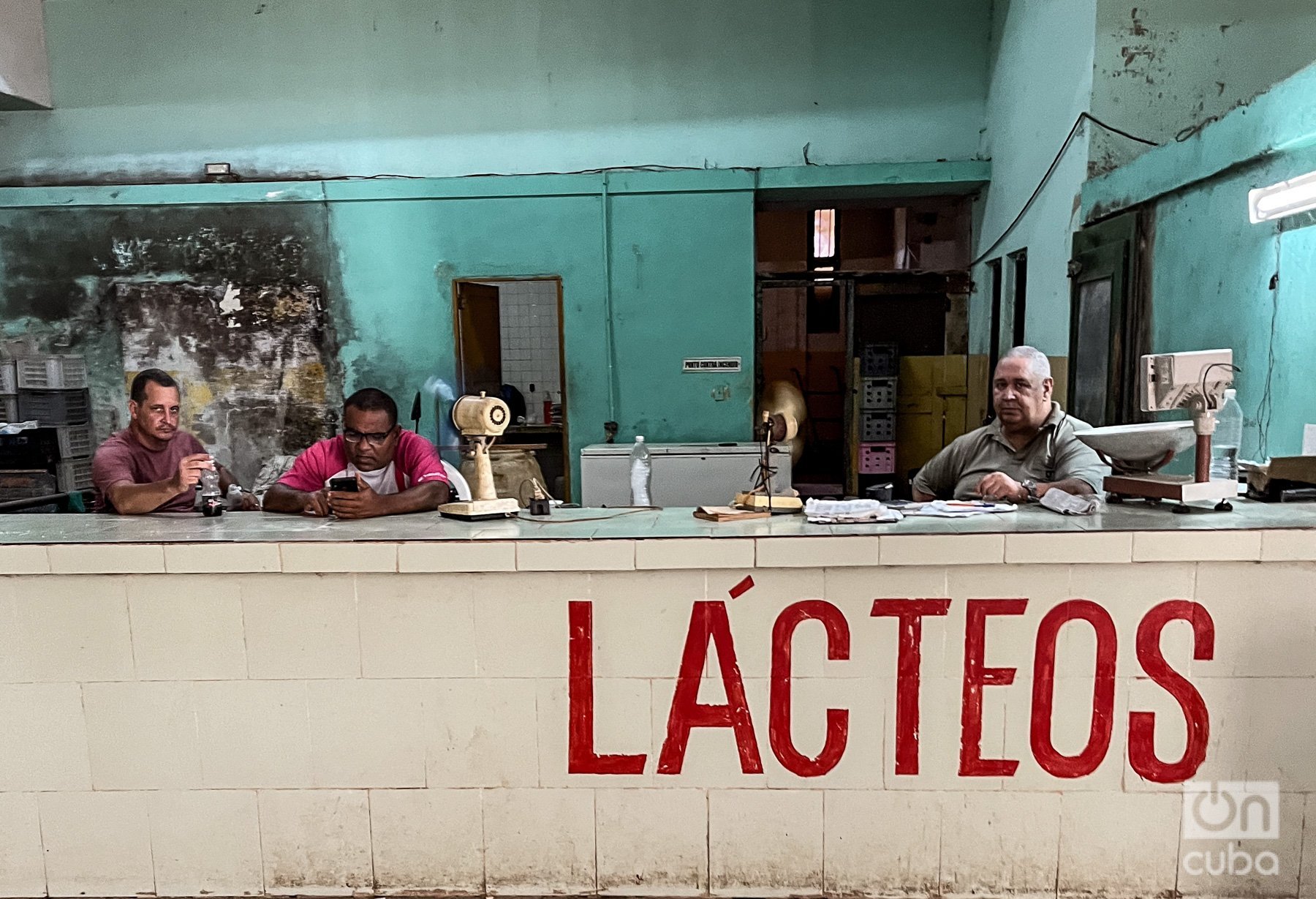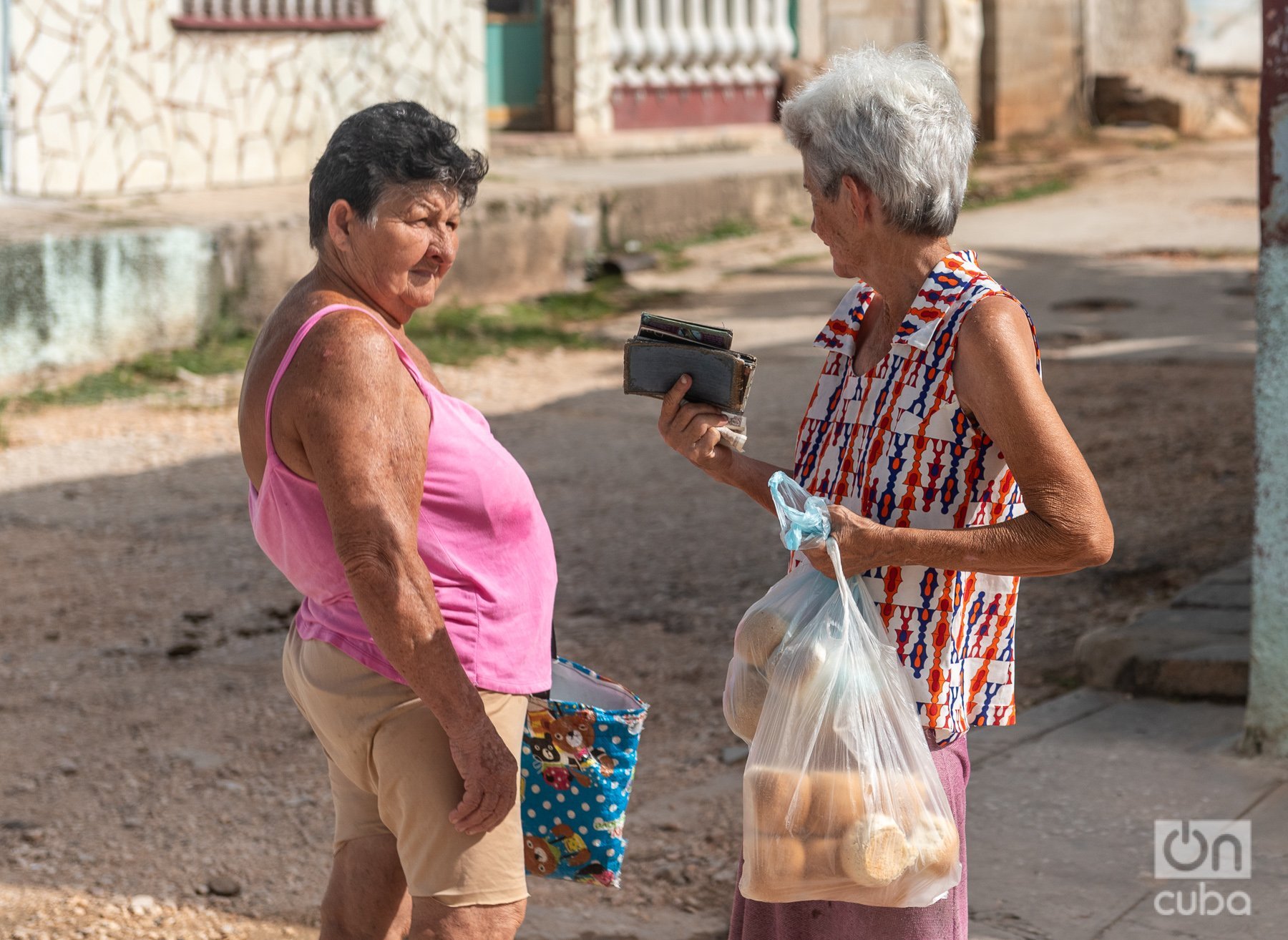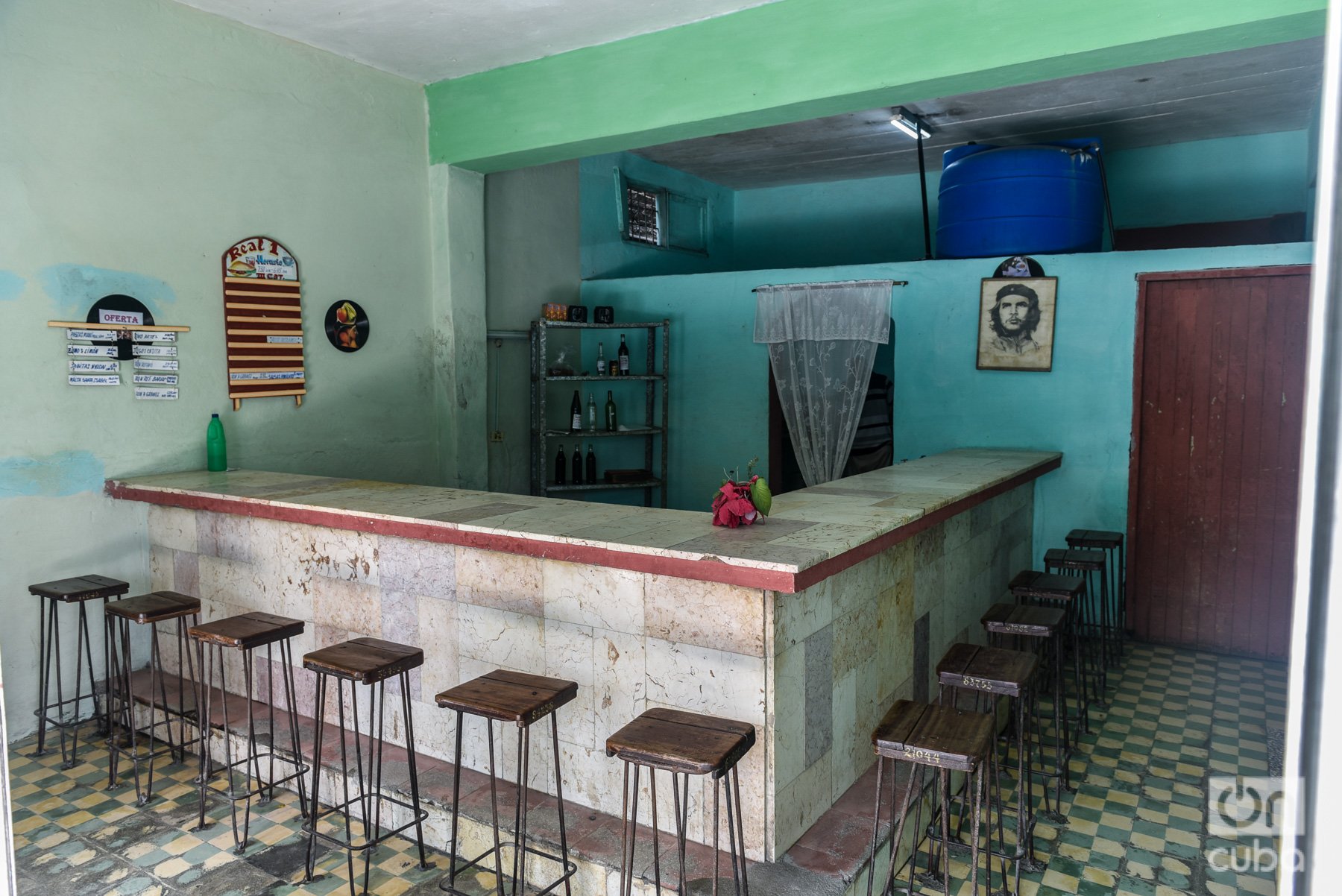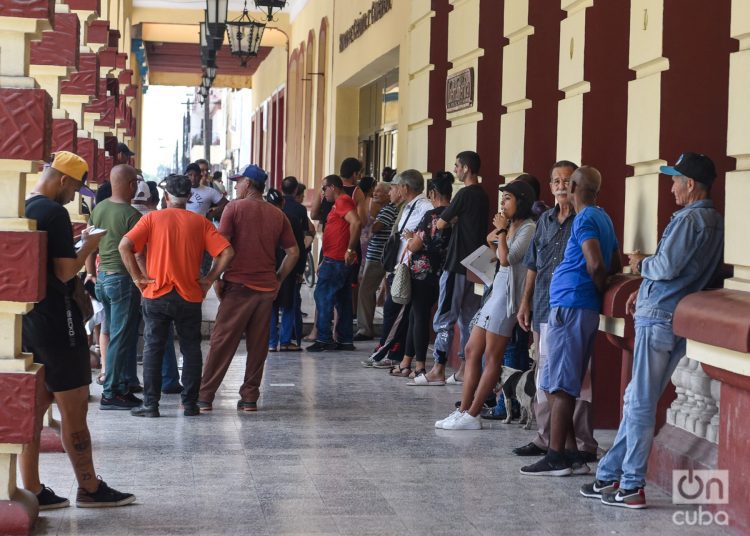It is becoming common that when the National Assembly of People’s Power (ANPP) discusses and analyzes current economic issues in the country, decisions from different bodies of the central state administration are soon announced, or, failing that, rumors are circulated about regulations that are supposedly being analyzed.
The contents of the recently approved Resolution 111/2023 of the Central Bank of Cuba (BCC) were not a reason for debate in the recent sessions of the ANPP, but there were a few days between the parliament meeting and the moment in which the new regulation was announced. Why wasn’t it discussed there?
The controversial Resolution is aimed at reorganizing financial flows within the country, as explained by BCC executives. The aim is to modernize collection and payment channels, with greater emphasis on the use of electronic means of payment; promote greater transparency in monetary circulation to leave less room for illegalities and improve price control.
Likewise, the aim is to obtain foreign currency savings in the manufacture of physical currency and to increase efficiency, immediacy, security, and payment capacity when using electronic means of payment. Almost all of these objectives could well be achieved at any time of the year, or in future periods, gradually. Where is the surprising thing?
The timing of the approval of the regulation is not coincidental. The long lines to withdraw cash from banks and ATMs, as well as some statistics that have been provided these days, not only show that the mass of money outside the banks has grown considerably; that the amount of cash operations grows more than operations without it, but also that the country does not have enough cash to respond to the demand of bank clients.
Producing cash is expensive: it requires special inks, paper and security marks, various controls, etc. There are also no resources to increase the number of bank branches, and the ATM network is increasingly deteriorating. All this has made it necessary to find urgent solutions, in the midst of the country’s weak financial situation.
In addition, high inflation makes low-denomination banknotes increasingly obsolete and, from time to time, it becomes necessary to replace the monetary cone used in the country, which demands new designs of higher-denomination banknotes and higher issuance costs.
In other words, the country’s own economic situation, also reflected in monetary circulation, has forced the BCC Resolution with greater urgency.

Gradualness?
Without ruling out the positive aspects it may have in pursuit of a more modern banking system, and about which in recent days an attempt has been made to provide information to the population, the Resolution contains other aspects that raise concern.
There is talk of gradualness when the country is really entering a new way of functioning without having gradually adapted to the new scenario.
The European Union approved the euro in January 1999, as a currency used for accounting purposes and for electronic payments; but the cash began to circulate three years later, in January 2002, to give time for all the necessary adaptations.
Sustainability?
In almost all countries in which ATMs, Points of Sale (POS) and debit/credit cards operate, attempts are made to make these instruments self-sustaining as part of new lines of business for the banking sector.
Banks charge businesses an intermediation fee, in exchange for the latter receiving the payments immediately, without having to keep cash and pay for its transfer to the bank.
Another variant is that banks receive commissions when the client withdraws cash from ATMs that do not belong to the bank where the account is held.
The amount of payments made through the use of cards is very high, so the cash withdrawn from ATMs and banks is usually not high and is proportional to the workers’ income.
Because they are used relatively little in these economies, ATMs deteriorate more slowly.
In Cuba, it is not like that. The day after receiving their salaries, the mass of cardholders who immediately go to withdraw all or a large part of them is high. That is not usual in the world.
Until now, few businesses have been accustomed to or prepared to charge electronically in national currency. Both ATMs and POS systems installed in businesses with sales in national currency barely offer economic income for the bank; they are seen only as a way to lighten the workload in physical bank offices. Both forms of money management must receive foreign exchange subsidies from other sources for their maintenance.
In Cuba, there are many purchases that are made in agricultural markets, carts, small businesses, in which there is no POS or custom to charge through the use of QR codes.
In addition, it is known that telecommunications connections often fail, even in specialized currency stores.

Without having been able to gradually solve these problems and create better conditions for the use of electronic means, reality forces the banking system to take the “leap forward” in this direction. It is expected that the population will go through many difficulties during the implementation of the regulation.
Why isn’t the money in the bank?
There is no in-depth explanation of why the population is withdrawing so much cash from their accounts. If the bancarization process is so favorable for the population, so safe and modern, why does the population resist believing in it and, on the contrary, what they do is wait in long lines to be able to extract more and more cash from the banks?
Once again we would have to go back to the economic situation of a country in which what prices do is increase and increase; the exchange rate of the national currency plummets day by day; the banks have difficulties in delivering the cash that clients demand and not only do they fail to fulfill their obligations with creditors abroad, but they also have difficulties in paying in cash in foreign currency the transfers of family aid that the population receives.
State stores do not offer enough products, neither in national currency nor in foreign currency; the population must satisfy many of its needs in forms of non-state management (FNSM) businesses, even when prices are high.
It is logical that the population distrusts and wants to keep their savings safe, although under the mattress is not the best place to keep one’s assets.
The blind eye
The measure will affect the waterline of SMEs and other FNSM that, with their dynamism and drive, have gone to an informal market to exchange national currency for foreign currencies; or to exchange local cash in foreign currencies for foreign currency in bank accounts abroad, given that the Cuban State does not give them options to access the foreign currency they need.
It is something that even the FNSM themselves have acknowledged to State officials, mentioning that the State has allowed it and “turned a blind eye” because the FNSM have solved, to a certain extent, the problem of massive shortages in state stores.
No one can criticize that the BCC is fighting against illegalities and wants to establish a transparent payment system, in which tax collection is more effective. Does it mean that the time has come for the State to stop “turning a blind eye” and begin to dismantle the mechanism by which the FNSM have been able to have an uninterrupted flow of goods into the country? Is the country prepared to ensure that the population can satisfy their needs of all kinds in state-chain stores, without having to go to the FNSM?
Nobody talks about that, as if banking regulations only deal with the operation of accounts, ATMs, electronic media, etc., ignoring that everything in the economy is intertwined and that the banking system plays a primary role in the entire economic mechanism of society.
What is interesting — as always — is that the BCC regulation has come out before state chain stores begin to have stable supplies; that they pay their foreign debts without difficulty; that there be a mechanism so that ALL economic actors — state and non-state — can purchase foreign currency against their balances in national currency; so that the banking system transfers abroad the transfers ordered by its clients, from foreign currency accounts, whether from state and joint venture accounts in CL, or from accounts of the FNSM, or of foreign entities, outside of Mariel or in the Mariel development zone. Many of these transfers have not been executed since 2021.
If there is no progress in any of the above, how are clients — individuals and legal entities — expected to entrust their funds to the banking system and not wish to extract the balances from their accounts, or work their collections and payments outside the banking system? Wanting to revive the banking system with band-aids will not be enough, although its pitiful situation is not due to decisions of the banking system itself.
It seems that there is confidence that when the FNSM cannot carry out their work in the way they have been doing, the foreign exchange will flow to the state companies and then a solution can be found to the aforementioned realities. In other words, we start from the criterion, once again, that SMEs and other FNSM are to blame for the current situation, and that the order of solution to the problems to be attacked begins with them.
But it is well known that these problems come from long before SMEs emerged and that what they have done is find a business niche, from which state enterprises have withdrawn.
The lack of liquidity in foreign currencies has much deeper causes that, if they are not attacked, the problems will not be resolved. Business autonomy, and within it, the ability of companies to use the financial resources they generate, is essential for state enterprises to function properly. The objectives will not be achieved just by destroying the supposed “culprits” of the current situation.
A synthesis of what was published these days by respected Cuban economists concludes that Resolution 111 will not reduce the pressure on the cash in the hands of the population, prices will not be reduced but on the contrary, the supply of goods will decrease if imports by the FNSM decrease, foreign currency will continue to be purchased in the informal market since the State lacks it, prices will tend to rise as the Cuban peso depreciates further.
The Cuban peso is already trading at 235-240 pesos per one USD. All of this will affect the purchasing power of an important part of the Cuban population, mainly those who only receive income from salaries and pensions.

Will there be a second part?
It is to be expected that BCC Resolution 111/2023 will not be the only one issued in the coming times. A package of new measures in the economic sphere must arrive.
It is not possible to know what will be the measures and where they will be directed. However, starting from another of the realities that are always mentioned as “guilty” of the current situation, more and more rumors are being heard about the disappearance of the freely convertible currency (MLC), so that the national currency is the only currency in circulation in the country.
Can we expect true monetary unification in the country? Hopefully, this will be the case, as a group of economists have proposed.
Of course, it is unknown what the authorities are thinking of doing, but what we can do is give our opinion. Cuba is not in a position for measures to be taken without carefully calibrating what all their consequences could be.
In the same way that many economists insist that, before eliminating the Cuban convertible peso (CUC) and the dual exchange rate, other reforms had to be undertaken in the productive sphere (and the proposals were not heard), at the current stage we can warn about the sequence of measures in the case that the disappearance of the MLC is being considered.
With the constant depreciation of the Cuban peso and the consequent deterioration of the purchasing power of the population; with the restrictions on withdrawing cash, the shortage of food goods, the difficulties with transportation, among other stresses, any other future measures must be reasoned more carefully.








